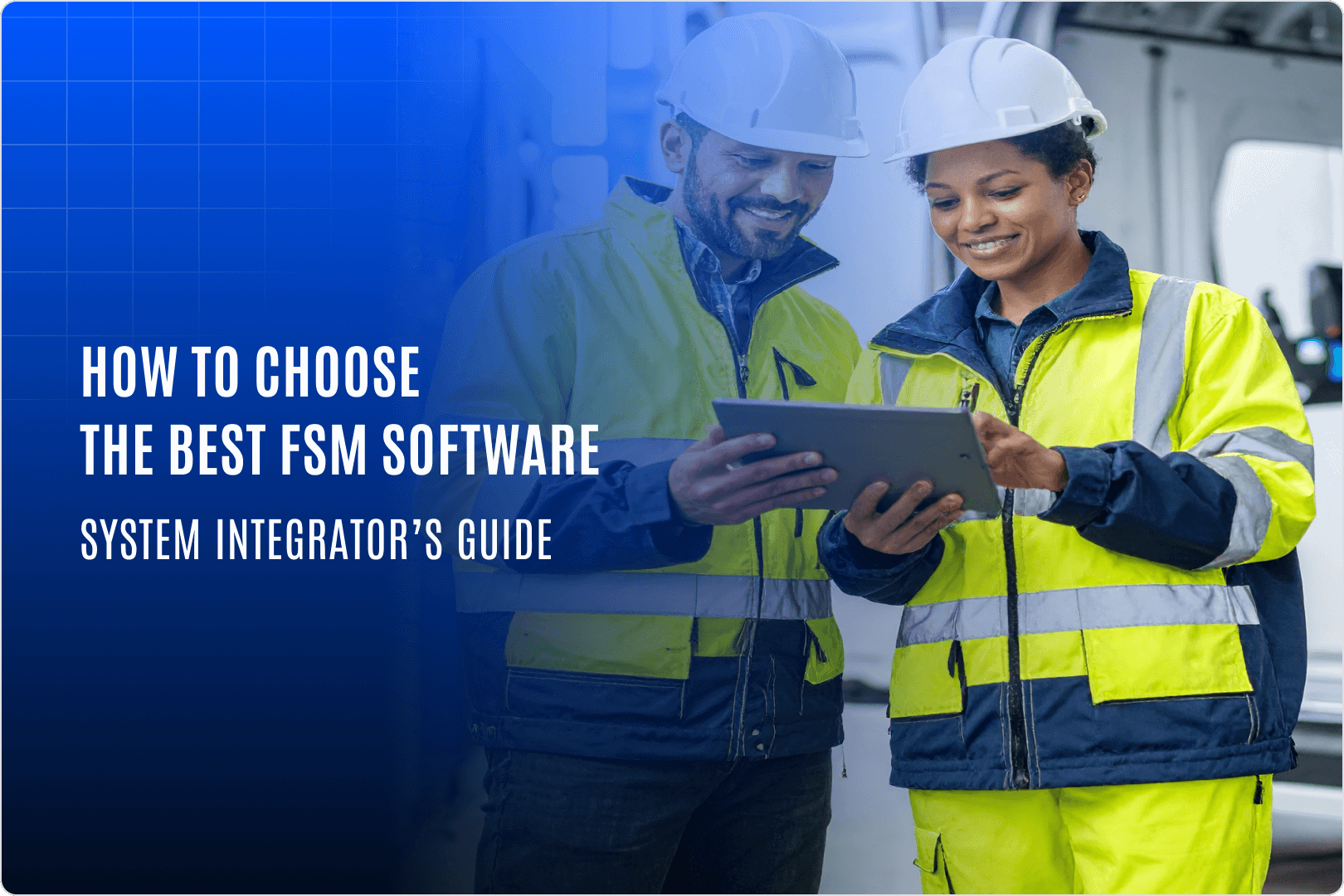5 Tips for Selecting the Best Field Service Management Software

As a system integrator, you don’t have the privilege of guessing. You’re not just choosing a tool for yourself; you’re recommending a full-blown one of the best field service management software that your clients will rely on every single day.
And with so many options claiming to be the “best field service management app,” the search can feel like finding a clean socket in a server room after a coffee spill.
So, how do you pick the one that works? More importantly, how do you pick the one that works for your clients and doesn’t give you headache tickets every Monday? Let’s break it down.
1. Start with Mobility: Because Desks Don’t Fix Field Issues
It is impossible to effectively monitor and manage the field workforce without a mobile app. Look for software that supports both managers and their field employees. If the FSM software isn’t mobile field service management software, move on.
Your clients’ field workers need quick access to job details, customer information, location data, and communication tools.
Think of it this way: field employees are out there climbing towers, servicing AC units, fixing routers, and delivering assets, and they don’t have a mobile app to stay updated.
Ask yourself:
- Can technicians update task status from their phones?
- Can they share photos, signatures, or locations live from the site?
- Is the mobile app actually usable, or is it just a sad, laggy extension of a web portal?
Remember, mobility isn’t a feature anymore. It’s the foundation of good field service monitoring software.
2. Check the Real-Time Monitoring
Field service can turn into chaos without real-time visibility. If your software can’t monitor tasks, employees, or job statuses as they happen, it is flying blind. And your clients? They’re stuck with guesswork.
The best field service management software should give you the following:
- Live location tracking of field agents.
- Real-time task status updates.
- Instant alerts for delays or deviations.
- A dashboard that is easy to understand.
Solid field service monitoring software turns field chaos into controlled execution. It doesn’t just report the mess; it helps prevent it.
3. Look Beyond Today: Scalability & Customization Matter
What happens when a 5-agent team becomes 50? Or when a client wants to track additional KPIs?
The field service management software you choose should scale effortlessly. That means:
- Add/remove users without extra drama.
- Smooth integration with other tools (ERP, CRM, IoT devices).
- Easy custom workflows, task types, and reports.
- White-labeling options, especially if you’re reselling or offering it under your own brand.
In short, don’t box yourself in. Choose a platform that grows with your clients, not against them.
4. Don’t Just Sell Features; Focus on User Experience
If you go to the market, you will find hundreds of tools offering 100 features to users who only need 10, then charge extra for the confusion.
But field teams aren’t software engineers. They need something that’s:
- Easy to adapt
- Clean UI/UX
- Fast onboarding & training
If the field service management solution isn’t user-friendly, its power will not matter because nobody will use it. Always demo the mobile and web apps with real workflows. Assign a task, upload a document, mark it completed, and escalate an issue. If you need a manual at every step, ditch it.
5. Support & Updates
Choosing a tool is not just about features, but what happens after onboarding it.
Here’s what your clients will need and what you should demand:
- 24/7 support that doesn’t ghost you after the first bug
- Regular improvements and product updates
- Dedicated account managers
- Transparent pricing and upgrade paths
If the software vendor isn’t committed to supporting your clients, it’s your credibility on the line.
Bonus Tip: Think of Reseller Opportunities
Many of the best field service management software providers offer partner or reseller programs. As a system integrator, that’s gold.
Look for software that:
- Let’s you co-brand or white-label.
- Gives you a partner dashboard.
- Offers a share in subscription revenue.
You’re not just solving a problem but building a recurring income stream. And if your clients are happy, they’ll stick around for the long run.
What Makes the Best Field Service Management Software?
If you’re looking for the ultimate field service management solution, make sure it:
- It is mobile-first and user-friendly.
- Supports real-time task and location monitoring.
- Can scale and integrate with your client’s ecosystem.
- Offers solid support and customization.
- Has reseller-friendly options for growth.
There is no one-size-fits-all FSM tool, but there is one that better fits your use case.
Final Thoughts
As a system integrator, you need the best field service management software not just for good business but to create a difference in the FSM market. You’re not just selling a tool; you’re architecting a solution. The right FSM software will help your clients streamline operations and make you a reliable partner when everything works seamlessly.






